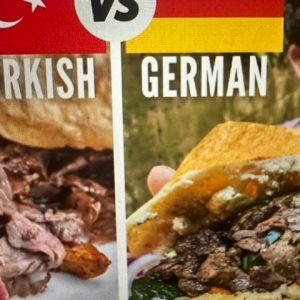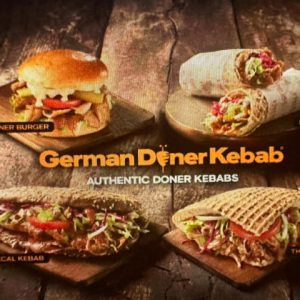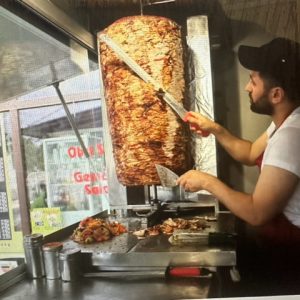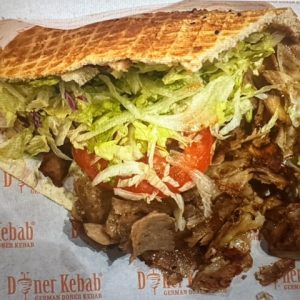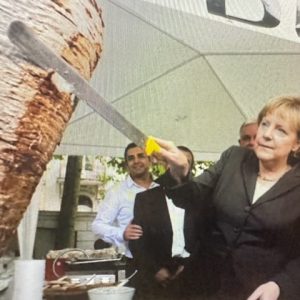The German paradox
Recent elections in Germany have highlighted a degree of antipathy towards migrants. Germany has decided to re-establish border controls and has deported some Afghan immigrants.
But this is not totally new. Germans have always had mixed feelings about their migrants of Turkish origin, who played an important role in the postwar rebuilding of this economic powerhouse.
And yet our German friends are enjoying a culinary love affair with the döner kebab, a delicious meal of Turkish origins. In sum, Germans have got themselves into a geopolitical and geo-culinary pickle.
The first appearance of the doner kebab was in the Ottoman Empire, back in the 17th century. The döner eventually found its way to Germany in the 1960s, where it traveled along with Turkish migrant workers, who came to Germany to remedy Germany’s worker shortage.
The recipes and cooking methods for doner kebab have evolved over time. But it is essentially seasoned meat (usually lamb) barbecued on a spit – the name doner means ‘to turn around’ in Turkish. It is then served in flat bread with salad and dressings. Because of its delicious simplicity, other cultures have adopted and adapted the tasty doner.
But nowhere has doner’s adoption been more enthusiastic than in Germany, especially in Berlin – to such a point that doner kebab is arguably the most popular meal in Germany.
How could a simple meal like doner kebab achieve such a culinary status in a country as sensible as Germany? It’s quite simple – with its Sauerkraut, pork knuckle and interminable sausages, traditional German cuisine is drab and dreary! In sharp contrast, doner kebab is delicious, tasty and healthy, even if it can be a little fatty.
Historically, doner kebab has never stood still. Long ago, the spit on which it is cooked went from horizontal to vertical. One doner variant is Iskender kebap. The Greek’s adapted their own variant, “gyros”. And German style doner kebab is often prepared with veal or chicken, but rarely the traditional lamb.
Today, Germany and Turkey have locked horns over the doner kebab, with Berlin appealing Ankara’s attempt to have the beloved street food given the same protected EU status as Spain’s serrano ham and Neapolitan pizza.
If Ankara’s application is successful, only beef and lamb “horizontally sliced into cutlets with a thickness of 3-5 mm” could be sold as doner. Chicken cutlets could be thicker in the poultry variety, while ground meat would be banned entirely.
The age of the animals of origin and the knife for slicing would also have to meet distinct specifications, as well as the spices for marinating the meat, according to the application sponsored by International Doner Federation in Istanbul, which argues that the dish is an integral part of Turkey’s “culinary heritage”.
Not surprisingly, our German friends are fretting. If Turkey is successful in its registration attempt, the new rules would have “catastrophic consequences for gastronomy businesses as well as consumers,” Ingrid Hartges, head of the German Hotel and Restaurant Association, told local media. The two countries now have six months to find a compromise, otherwise the European Commission will have to rule on the dispute.
German Food and Agriculture Minister Cem Ozdemir, who has Turkish origins, stirred debate by claiming that “the doner belongs to Germany.”
Posting on his social media X account, Ozdemir stated, “The doner kebab belongs to Germany. Everyone should be allowed to decide for themselves how it is prepared and eaten here. There is no need for guidelines from Ankara.”
People will often ask me what geopolitics have to do with everyday life. If you are a lover or seller of doner kebab, geopolitics is highly relevant.

